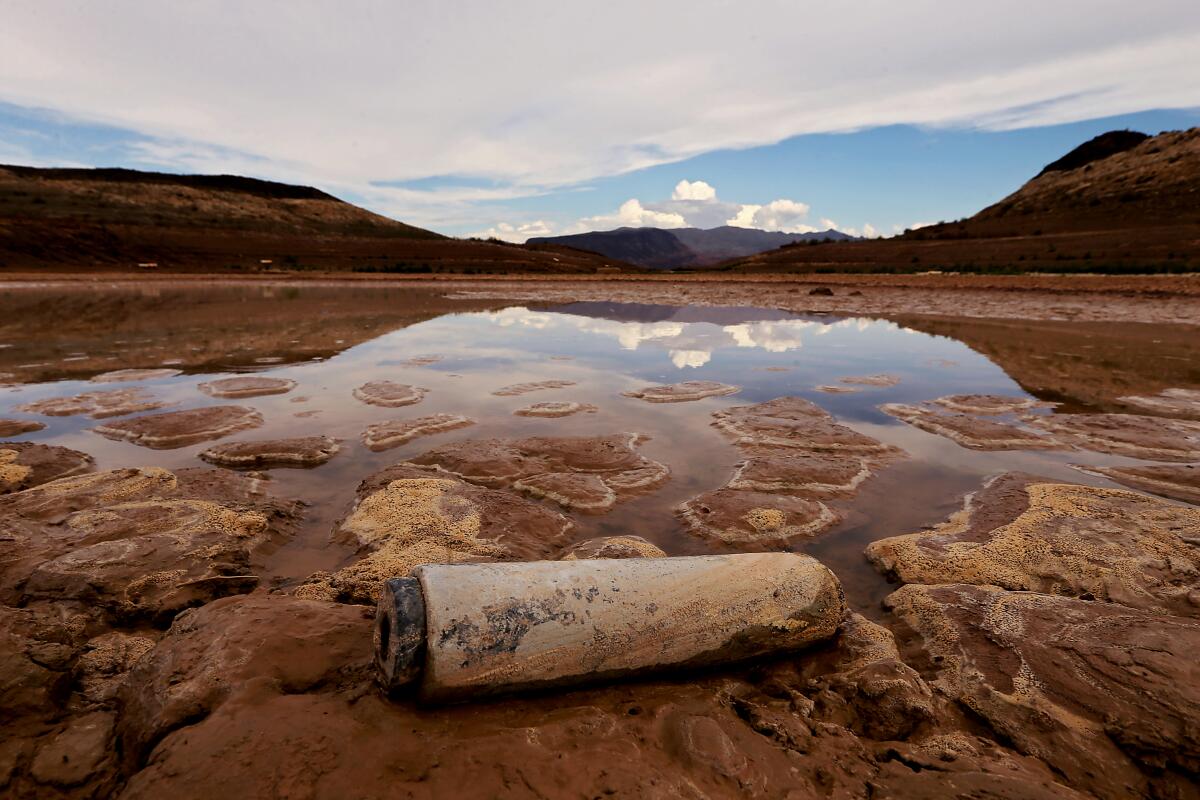Letters to the Editor: Save the Colorado River. Stop growing alfalfa in the desert

- Share via
To the editor: A missing piece of the Colorado River puzzle is the value of the raw water. One of your articles on the over-allocated river notes that “some farmers say it makes sense to keep growing hay because it’s lucrative.” That’s true, if the cost of the water is near zero.
But what is the value of that water? Local water agencies pay around $1,000 per acre-foot.
For alfalfa, quick research shows production of about four tons per acre and a selling price of at least $150 per ton. That’s at least $600 per acre, per year. But if the cost of that production assigned $3,000 to the value of three acre-feet of irrigation water, then the value of an acre of alfalfa becomes negative-$2,400.
Alfalfa in the desert seems a good deal for the grower as long as the water is close to free. But to a guy whose local water company pays real money, there is something wrong with this picture.
Richard Benson, Altadena
..
To the editor: One of your recent articles notes that the Colorado River “supplies cities, farming areas and tribal nations from the Rocky Mountains to the U.S.-Mexico border.”
This ignores our southern neighbor, Mexico.
Indeed, Article VI of the Treaty of Guadalupe Hidalgo, ratified in 1848 after the Mexican-American War, guaranteed the right of U.S. vessels to have free passage from the Gulf of California into the U.S. via the Colorado River.
The river nourished a vibrant delta. It too and its inhabitants should be considered.
Winfield Wilson, Redondo Beach
..
To the editor: The fight over the allocation of the Colorado River will not resolve the root problem of overuse.
California’s argument that deals made in the early 20th Century provide legal precedent are absurd considering that at that time, the size the population and agricultural industry was nowhere near current levels.
The current mentality is clearly focused on the economy with no intention in reduction. Without sacrificing economic output, the problem will become significantly worse, forcing a mass migration.
A quick solution would be to restrict agricultural exports from California, since an estimated 44% of our output is exported abroad. This would free up sizable amounts of water.
Furthermore, restrictions on housing development should be made in all states. Yes, this will hurt the economy, but it’s better than waiting until there’s no water.
Nicholas Rains, Fremont, Calif.
..
To the editor: Simple solution — mandate drip irrigation.
Janet Cupples, Sherman Oaks



